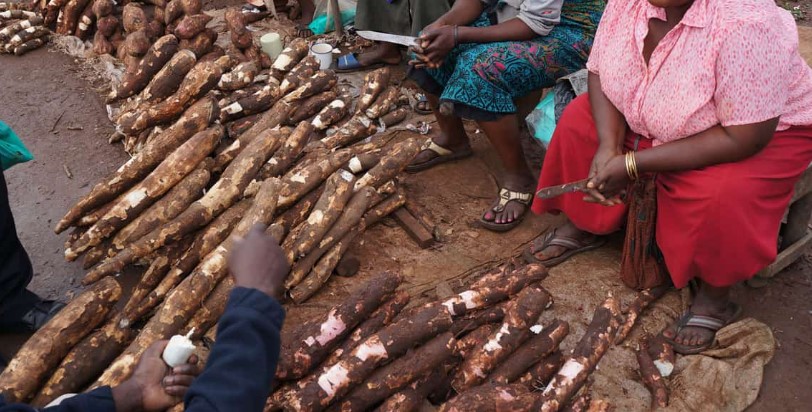Kenya will host the National Cassava Conference and Expo 2023 (NCCE), from October 24–26, 2023, to enhance cassava production, productivity, and value addition.
The Conference-themed ‘Spearheading Innovation and Technology for Cassava Sector’ will aid in creating positive public awareness of cassava’s importance in food and nutrition security and socio-economic development.
The conference, organized by Self Help Africa and the Ministry of Agriculture and Livestock Development (MoALD) in partnership with the European Union and other important development organizations, will take place at the Safari Park Hotel in Nairobi.
According to Jo Ryan, the country director of Self Help Africa, increased cassava production will save billions that could be used to fund social and economic development projects in the country instead of being spent on importing staple food produce and products for industrial and consumer use.
“There is a need for consistent promotion across the country through cassava Forums, Trade Fairs and exhibitions events, considering its resilience to moisture stress, higher productivity per hectare over cereal crop farming and importance in food & nutrition security,” said Ryan.
Did you read this?
The conference will provide a learning platform for local, regional, and international cassava value chain players.
They will also showcase and demonstrate their latest technologies, products, and services and examine recent market trends and trade opportunities.
Further, the Conference will provide a platform to facilitate the establishment of linkages that increase investment in the cassava value chain through a combination of government partnerships and private sector engagement.
Link and accelerate the development of affordable trading standards, procedures, protocols, and accreditations, identify areas of initial support to cassava actors promote national branding of cassava and cassava products, and increase awareness of consumption.
Production of cassava in Kenya is mostly concentrated in a few agricultural ecological zones that include western Kenya, the coast, and the eastern zones of the country.
In these regions, cassava accounts for a greater percentage of the total cassava production in the country.
According to the Ministry of Agriculture, about 60 percent of cassava in Kenya is produced in the western region, 10 percent in the eastern region, and 30 percent on the coast.
Kenya currently produces 1 million metric tonnes of cassava, most of which is consumed locally, but the country can produce more than 3 million metric tonnes annually.









